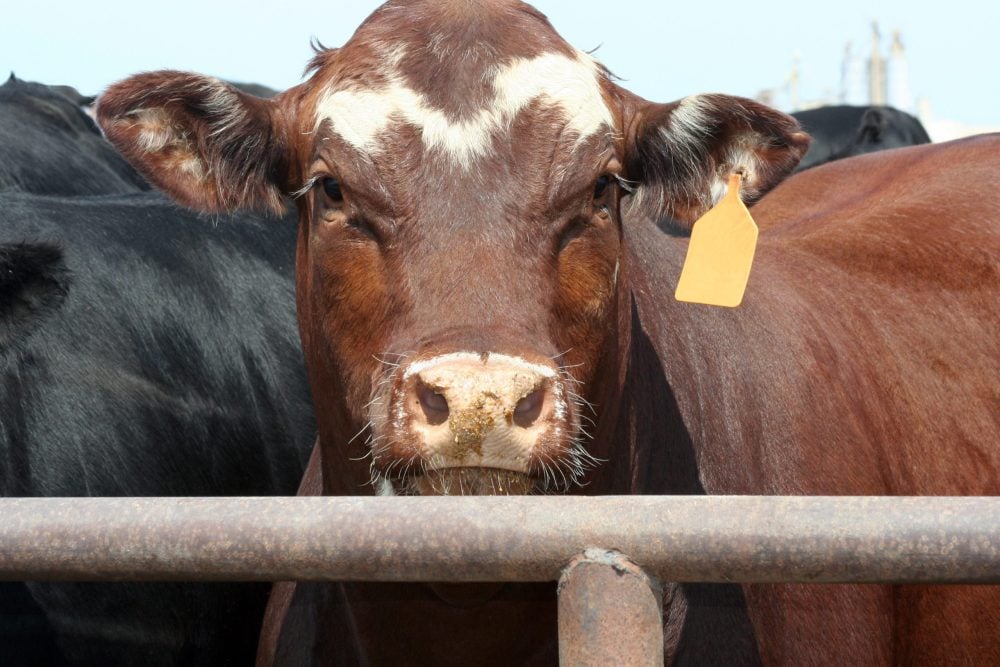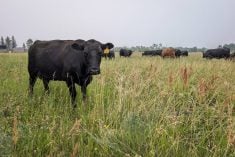Efforts to open Taiwan’s ports to a wider range of Canadian beef have hit a substantial snag, as that country’s legislature moves to impose new bans of beef from countries known to have BSE.
The Taiwanese legislature announced Tuesday morning that it will amend that country’s Food Sanitation Act to ban imports of all ground beef and offals from any country that has had a case of bovine spongiform encephalopathy, for a period of 10 years from the exporting country’s most recent case.
The legislature also approved a separate resolution to restrict U.S. beef imports to products derived from cattle younger than 30 months of age (UTMs), the U.S. Meat Export Federation reported in a release Tuesday.
Read Also

U.S. livestock: Cattle futures plunge daily limits on beef price fears
Reuters — Most Chicago Mercantile Exchange live cattle and feeder cattle futures contracts fell their respective daily limits on Friday,…
Canadian beef exporters have been limited to sending shipments of boneless beef from UTMs since 2007, when it was able to ship just 244 tonnes of meat to Taiwan. When or if Taiwan fully reopens its ports to Canadian beef, the Canada Beef Export Federation anticipates building exports to 4,000-9,000 tonnes.
Taiwan, and many other jurisdictions worldwide, had blocked Canadian beef outright after Canada’s first home-grown case of BSE was confirmed in an Alberta cow in 2003. Canada reported its 16th confirmed case of BSE in an Alberta dairy cow in May 2009.
More recently, however, Canada was put at a technical disadvantage in the Taiwanese market about two months ago. That’s when U.S. officials announced a bilateral agreement with Taiwan to open its ports to all U.S. beef, other than specified risk materials (SRMs, the nervous-system tissues known to harbour BSE in infected cattle and now removed at slaughter).
The U.S. beef industry and federal agriculture officials were quick to express their disappointment Tuesday with Taiwan’s decision, with the U.S. Agriculture Department saying Taiwan’s amendments “do not have a basis in science and constitute a unilateral violation” of the two countries’ agreement.
“In our view, the issues expressed by politicians in Taiwan have absolutely no basis in scientific fact and fly in the face of Taiwan’s own risk assessment,” Gregg Doud, chief economist with the U.S. National Cattlemen’s Beef Association, in a separate release Tuesday. “To suggest that there are any safety concerns related to U.S. beef is outrageous.”
“Half a loaf”
The U.S. had exported about US$114 million in beef sales from January through October 2009.
Deputy U.S. Trade Representative Demetrios Marantis and U.S. Foreign Agricultural Services undersecretary Jim Miller warned Taiwan Tuesday that its politicians’ actions “will also undermine Taiwan’s credibility as a responsible trading partner and will make it more challenging for us to conclude future agreements to expand and strengthen bilateral trade and economic ties.”
From Canada’s perspective, federal officials until now had been reportedly making some progress on technical matters relating to expanded beef market access in Taiwan, according to John Masswohl, director of governmental and international relations for the Canadian Cattlemen’s Association.
The problem now in Taiwan is on the political side of the coin, which leaves federal officials conveying that Canada is “not very happy” with the new import regime, Masswohl said from Ottawa Wednesday.
Taiwan has been a high priority for officials seeking to expand beef exports, Masswohl said. The country wasn’t traditionally a large exporter by weight, but had been considered a “high-value market” for premium cuts, worth more money per kilogram.
However, the agreement technically takes away the competitive advantage U.S. beef was poised to enjoy in Taiwan, Masswohl said.
While the U.S. until now had had an agreement allowing imports of U.S. beef to Taiwan, the U.S. had “voluntarily” opted not to ship beef from animals over 30 months old (OTMs), leaving Washington with “half a loaf,” he said.
While an English-language translation of the new Taiwanese legislation isn’t yet available for review, it appears that for the U.S., the legislation “takes away their half a loaf,” Masswohl said.
















